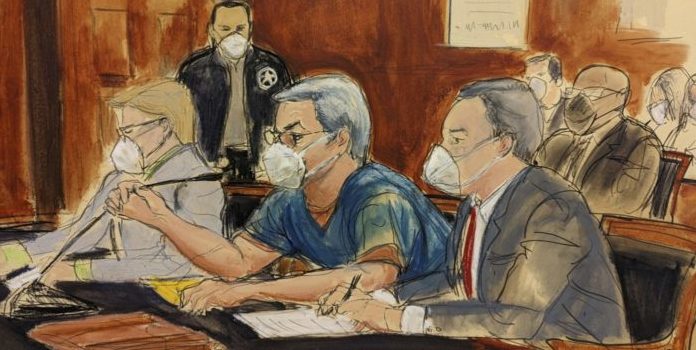(Headline USA) Former Honduran President Juan Orlando Hernández is being held like a “prisoner of war” in a New York federal jail, his lawyer told a judge Tuesday.
In that regard, the former president seems to have at least something in common with the J6 prisoners who are being held in reportedly atrocious conditions in a D.C. gulag, separated from others in what supporters have called the prison’s Patriot Wing.
While the conditions of imprisonment might be similar, that where comparisons end. Hernández served as president of the Central American nation from 2014 through 2022. He faces charges including participating in a drug trafficking conspiracy, possession of machine guns and destructive devices and conspiracy to possess machine guns and destructive devices.
Attorney Raymond Colon made the assertion as Hernandez pleaded not guilty to charges that he received millions of dollars from 2004 to 2022 to support a drug trade that delivered hundreds of thousands of kilos of drugs to the U.S.
Hernandez had previously received support from varies U.S. government agencies under multiple presidents, including Donald Trump, for what was considered successful initiatives to stop drug trafficking.
Colon said Hernandez has been held in solitary confinement and has not been permitted to communicate with his family or receive access to the jail’s commissary since he was extradited three weeks ago to face charges. He said Hernandez is sometimes allowed to exercise on a basketball court for one hour but isn’t given a basketball.
The lawyer also complained that he’s been mostly blocked from meeting with Hernandez, although his paralegals have been permitted to meet with him.
U.S. District Judge P. Kevin Castel directed the government to look into the issues and report to him within a week. Castel also set a tentative trial date for Jan. 17.
“Obviously, he’s been treated like a prisoner of war, not like every other inmate,” Colon said.
The lawyer said Hernandez has been isolated in a wing of the jail and treated as if he was a terrorism defendant or a violent inmate subject to special prison rules.
“He’s not a terrorist,” Colon said. “There’s no violence in his history.”
Castel said he could not think of a reason why Hernandez would be denied family phone calls, use of the jail commissary and other privileges inmates receive, although he invited prosecutors to submit an explanation under seal if there was a secret reason that could not be disclosed publicly.
Otherwise, the judge said, “Let’s see if we can get a prompt report and corrective measures as appropriate.”
“My client’s very grateful,” Colon said as a bespectacled Hernandez nodded his head enthusiastically beside him.
A message for comment left with the Federal Bureau of Prisons was not immediately returned.
Hernández was arrested at his home in Tegucigalpa in February at the request of U.S. authorities. Honduras’ Supreme Court rejected his appeal of a judge’s decision favoring extradition.
Adapted from reporting by the Associated Press

